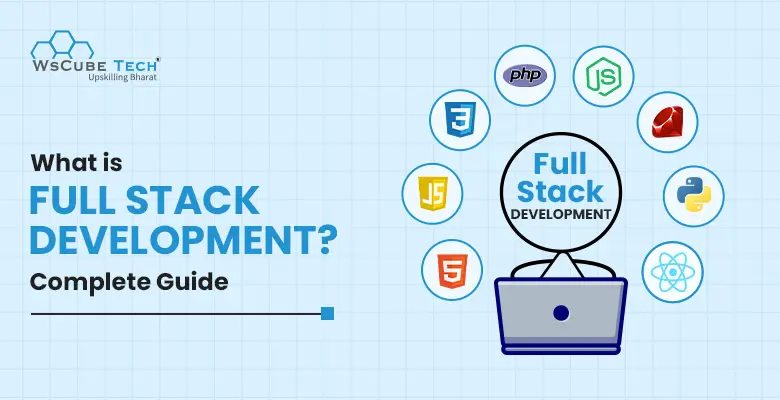Mastering Linux: Your Ultimate Guide
Explore the world of Linux with expert tips and tutorials.
Full-Stack Development: The Swiss Army Knife of Coding
Unlock the power of full-stack development! Discover why it’s the ultimate coding skill every tech enthusiast needs in their toolkit.
What Skills Make a Full-Stack Developer a Versatile Asset?
A full-stack developer is an invaluable asset to any tech team, primarily due to their diverse skill set that spans both front-end and back-end technologies. Firstly, proficiency in multiple programming languages such as JavaScript, Python, and Ruby is essential, allowing these developers to tackle various aspects of a project. Secondly, understanding frameworks and libraries like React, Node.js, and Django amplifies their versatility, enabling them to efficiently create dynamic and responsive web applications. Moreover, familiarity with database management systems, such as MySQL and NoSQL, equips full-stack developers to effectively manage data, ensuring seamless user experiences.
In addition to technical abilities, soft skills play a crucial role in making full-stack developers versatile across different scenarios. Effective communication, for instance, is important as it enhances collaboration between team members and stakeholders. The capacity to adapt and learn new technologies quickly also distinguishes them in the ever-evolving tech landscape. Furthermore, strong problem-solving skills enable full-stack developers to troubleshoot issues that arise during development, contributing to overall project efficiency. As such, a combination of both technical proficiencies and soft skills positions full-stack developers as crucial team players who can navigate diverse challenges with ease.

The Essential Tools Every Full-Stack Developer Should Know
In the rapidly evolving world of technology, a full-stack developer must be well-versed in a range of tools to effectively build and maintain applications. The essential tools can be categorized into several areas: front-end development, back-end development, and database management. For front-end development, popular frameworks like React, Angular, and Vue.js offer powerful features for creating dynamic user interfaces. On the back-end, tools like Node.js, Django, and Ruby on Rails are crucial for server-side logic and API development.
Moreover, a solid understanding of database management systems such as MySQL, PostgreSQL, and NoSQL solutions like MongoDB is essential for data storage and retrieval. As collaboration and deployment become increasingly important, tools like Docker, Kubernetes, and version control systems like Git are invaluable for managing code and ensuring smooth deployments. Ultimately, being proficient in these essential tools not only enhances a full-stack developer's skillset but also streamlines the development process, making them a more effective contributor to any project.
How Full-Stack Development Bridges the Gap Between Frontend and Backend
In the modern landscape of web development, full-stack development plays a crucial role in bridging the gap between frontend and backend technologies. Full-stack developers possess a unique combination of skills that allow them to work on both the client-side and server-side of applications. This versatility means they can effortlessly transition from crafting engaging user interfaces with frameworks like React or Angular to managing server-side logic and database interactions using Node.js or Python. As a result, full-stack development fosters a more cohesive development process, allowing teams to streamline workflows and enhance collaboration.
Moreover, full-stack development not only bridges technical divides but also enhances the overall user experience. By understanding how the frontend interacts with the backend, developers can build applications that are both performant and visually appealing. This holistic approach enables them to identify potential bottlenecks, optimize performance, and create seamless interactions between the user interface and server responses. Ultimately, full-stack developers serve as vital connectors in the software development lifecycle, ensuring that both ends work harmoniously together to bring innovative applications to life.